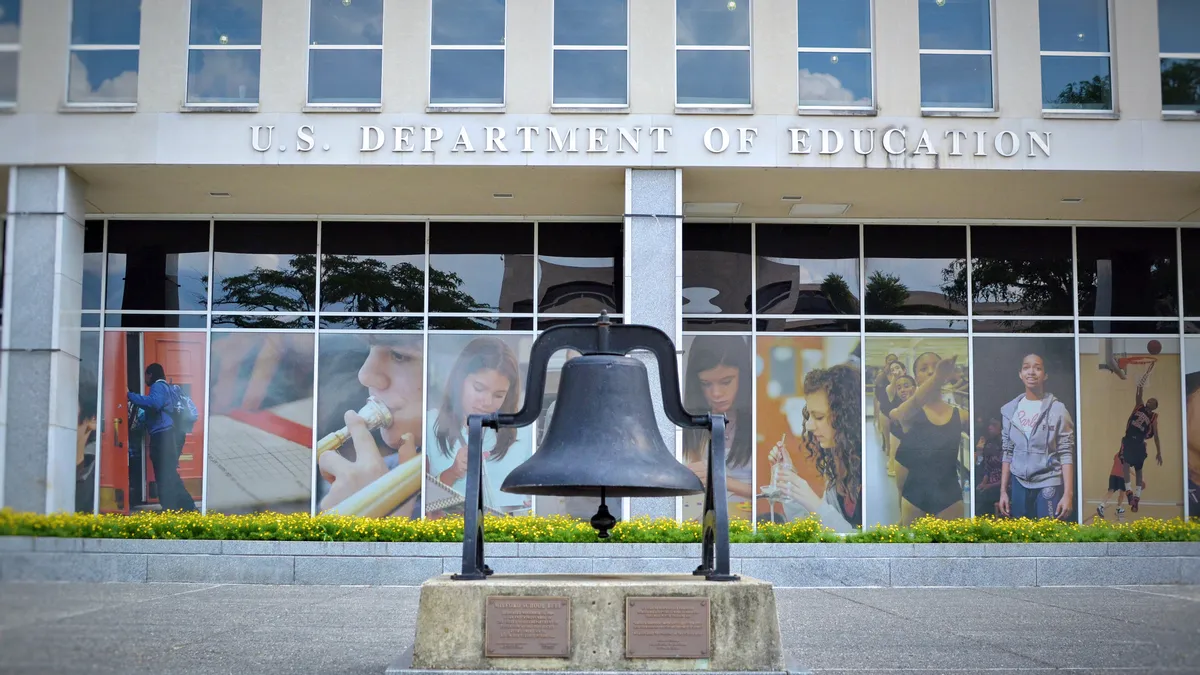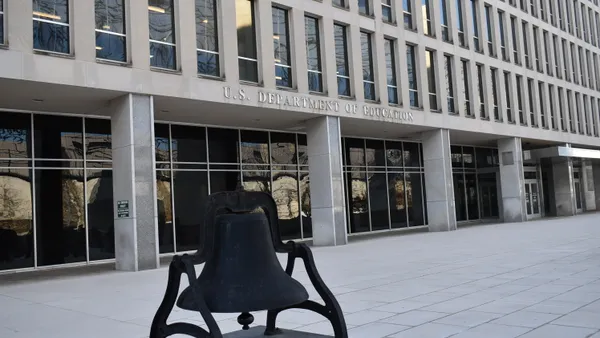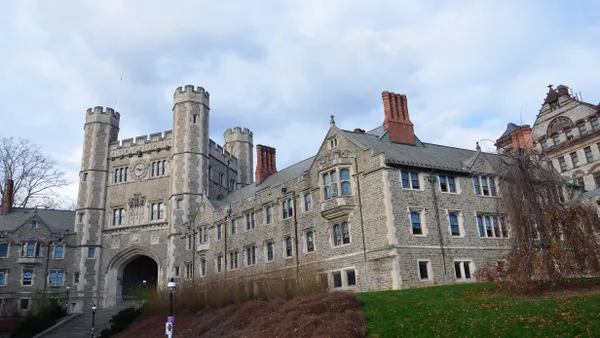Dive Brief:
- Congressional lawmakers questioned a panel of higher ed experts during a hearing Tuesday about the oversight of for-profit colleges that convert to nonprofit status.
- The hearing was held in response to a report earlier this year from the U.S. Government Accountability Office that found conflicts of interest in a third of such transactions over the last decade. The report was spurred by a request from several Democratic lawmakers.
- The hearing included discussion of the power the U.S. Department of Education can exercise over these conversions, which have grown in number in recent years.
Dive Insight:
Several for-profit college operators have in recent years sought nonprofit status to circumvent regulations targeting the sector. The Ed Department has largely allowed the changes.
These include the sale of the for-profit Ashford University to the public University of Arizona, and of the for-profit Kaplan University to the public Purdue University, in Indiana. Both purchasing colleges were seeking to expand their online programs.
The GAO report found that the department approved over half of the 59 transactions that occurred from January 2011 to August 2020. Around a dozen colleges closed before a decision was made, and another nine were still under review.
The deals can be complex and controversial. Some of the most high-profile cases involve an ongoing relationship between the for-profit college's former parent and the new nonprofit institution, as is the case with Purdue and U of Arizona. And although the IRS approves the change in tax status, the Ed Department makes its own determination about whether the college can be considered a nonprofit for the purposes of receiving federal financial aid.
The recent separation of Grand Canyon University from its former parent company highlights the potential for conflicting decisions between the Ed Department and the IRS. The IRS approved the university's switch from for-profit to nonprofit status, whereas the department did not. (The university is now suing the department to recognize it as a nonprofit.)
Members of the U.S. House of Representatives' education and labor committee spent more than three hours on Tuesday asking a panel of higher education experts about federal oversight of nonprofit conversions.
Republicans largely echoed their longstanding criticism that scrutiny of these conversions disproportionately targets for-profit colleges, and instead pushed for more focus on the student outcomes related to specific programs and colleges. Democrats expressed concerns about the conversions' ramifications on the institutions' operations.
Change could be coming. Melissa Emrey-Arras, the GAO official who led the report and a witness at Tuesday’s hearing, said during the discussion that the Ed Department can do more to monitor converted institutions after their status change is approved to ensure they are operating as a nonprofit and that no person or entity is benefiting improperly from the transaction. The department agreed with the GAO's recommendation, according to the report.
The GAO also recommended the IRS revise its process of reviewing these transactions to better identify potential conflicts of interest.
Emrey-Arras also said the Ed Department is prohibiting colleges awaiting approval of their conversion from advertising themselves as nonprofits and is taking steps to notify them.
"This is particularly important because we found that schools were doing that kind of advertising," Emrey-Arras said.














